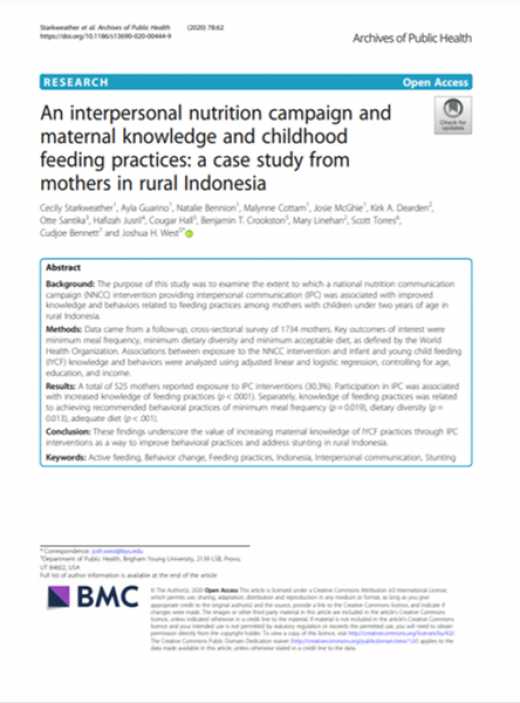An interpersonal nutrition campaign and maternal knowledge and childhood feeding practices: A case study from mothers in rural Indonesia
Peer Reviewed Articles
An interpersonal nutrition campaign and maternal knowledge and childhood feeding practices: A case study from mothers in rural Indonesia
Abstract
Background: The purpose of this study was to examine the extent to which a national nutrition communication campaign (NNCC) intervention providing interpersonal communication (IPC) was associated with improved knowledge and behaviors related to feeding practices among mothers with children under two years of age in rural Indonesia.
Methods: Data came from a follow-up, cross-sectional survey of 1,734 mothers. Key outcomes of interest were minimum meal frequency, minimum dietary diversity and minimum acceptable diet, as defined by the World Health Organization. Associations between exposure to the NNCC intervention and infant and young child feeding (IYCF) knowledge and behaviors were analyzed using adjusted linear and logistic regression, controlling for age, education, and income.
Results: A total of 525 mothers reported exposure to IPC interventions (30.3%). Participation in IPC was associated with increased knowledge of feeding practices (p < .0001). Separately, knowledge of feeding practices was related to achieving recommended behavioral practices of minimum meal frequency (p = 0.019), dietary diversity (p = 0.013), adequate diet (p < .001).
Conclusion: These findings underscore the value of increasing maternal knowledge of IYCF practices through IPC interventions as a way to improve behavioral practices and address stunting in rural Indonesia.
Read the article


